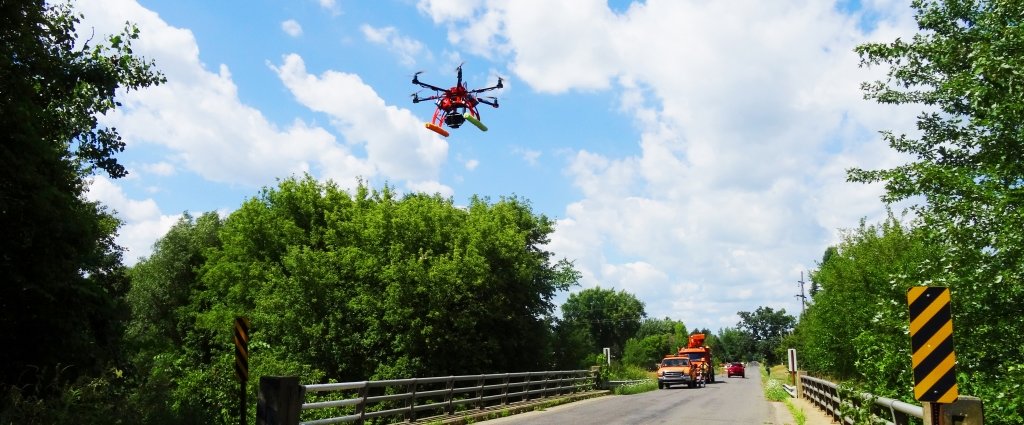After a career dedicated to government service, Aurea Rivera is out to tackle a daunting challenge: increasing world agriculture output to meet the needs of our growing population.
Call them remote-controlled devices or call them remotely piloted equipment—just don’t call them drones. “The word carries such a hostile, fear-based connotation,” says Aurea L. Rivera, a 2012 graduate of Michigan Tech’s online MBA program. “It has absolutely no relation to the beneficial applications of unmanned aerial systems technology to civilian life.”
With her new company, Imagineering Results Analysis Corporation, Rivera is developing ways to use unmanned aerial systems (UAS) sensor data to address the environmental impact of excessive fertilization, a common problem in modern agriculture. Her efforts are aimed at increasing agricultural output; according to projections, global production must double by 2050 to support the ever-expanding human population.
“To do so, we must develop more efficient, effective growing systems that provide a high yield and minimize environmental impact,” says Rivera.
Rivera’s solution is to use UAS sensors data to help farmers establish tailored fertilization schedules. In doing so, she will help them expand production, reduce costs, and minimize environmental impact due to over-fertilization.
During the initial stages of the project, Rivera will collect data from UAS-mounted sensors that measure the response of crops to spectral lines of sunlight. Using the results, which indicate the level of health and fertilization requirements for each plant, she will create database signatures and models that are calibrated to specific crops. Farmers can then use the models to create custom fertilization plans.
"There is a world of opportunity out there for individuals who are willing to reinvent themselves."
“I’ve spoken to the USDA, and there is not currently a place for farmers to get all of this information in one spot—it just hasn’t been done.”
“Basically, I want to create the structure for the Google of agriculture, the hub for data analytics for the nation.”
UAS-based precision agriculture is a work in progress; currently, the Federal Aviation Administration (FAA) is in the process of selecting six UAS test sites around the nation. Rivera hopes that the agricultural analysis systems her team will create will be ready to go when the FAA gives the green light for the UAS integration into the national air space scheduled for 2015.
With her extensive background in government service (she was the technical director for data analysis at the National Air and Space Intelligence Center in Dayton, Ohio) and a wide base of technical expertise, Rivera is uniquely poised to affect change in the agricultural industry. After earning a degree in electrical and electronics engineering from the University of Puerto Rico-Mayaguez, she embarked on a thirty-three-year career as a civilian with the United States Air Force. Starting as a surface-to-air missile analyst, Rivera worked in advanced radar systems, intelligence analysis, target signatures, and air and space intelligence.
“All of my professional experiences are useful in developing precision UAS sensors and its associated data analytics. I am passionate about changing the way we address innovation in agriculture,” she says. “There is a world of opportunity out there for individuals who are willing to reinvent themselves. The sky is the limit."
Michigan Technological University is an R1 public research university founded in 1885 in Houghton, and is home to nearly 7,500 students from more than 60 countries around the world. Consistently ranked among the best universities in the country for return on investment, Michigan's flagship technological university offers more than 120 undergraduate and graduate degree programs in science and technology, engineering, computing, forestry, business, health professions, humanities, mathematics, social sciences, and the arts. The rural campus is situated just miles from Lake Superior in Michigan's Upper Peninsula, offering year-round opportunities for outdoor adventure.




